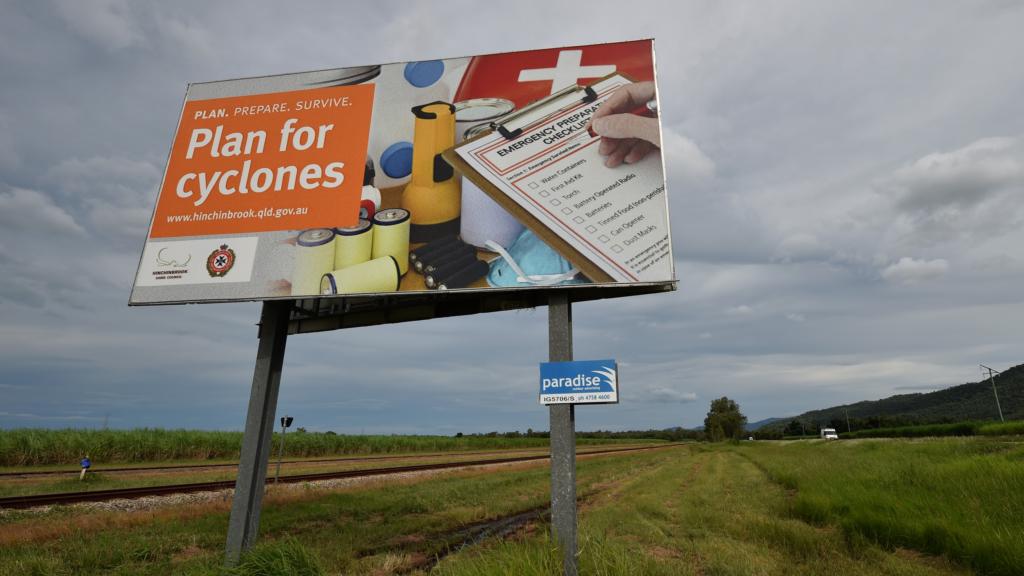Australia’s tropical northeast was battered on Tuesday by a powerful cyclone packing winds of up to 260 kilometers (160 miles) per hour, uprooting trees, tearing down fences and knocking out power to thousands, officials said.
Cyclone Debbie, which slammed into the coast of Queensland state as a fierce Category 4 storm, quickly began to weaken after making landfall near the resort town of Airlie Beach, the Australian Bureau of Meteorology said. By Tuesday night, it had been downgraded to a Category 2 storm, with wind gusting up to 155 kilometers (95 miles) per hour.
One man was injured after a wall collapsed in Proserpine, a town south of Airlie Beach, Queensland Police Commissioner Ian Stewart said. The man was taken to a hospital, where he was in stable condition.
The extent of the damage from the storm was not known as night fell across the region, but there were reports of roofs peeling from homes, fences crumbling and trees snapping in half. The idyllic Whitsunday Islands, a popular tourist destination, were hit particularly hard, with one recorded wind gust of 263 kilometers (163 miles) per hour, the meteorology bureau reported.
The slow-moving storm pounded the coastal region for hours, creating what Stewart called a “battering ram effect,” with the same areas enduring the howling winds and drenching rains for a punishingly long time.
Communities along more than 300 kilometers (190 miles) of coastline were expected to be impacted, Stewart said.
Australia’s military was sending vehicles, aircraft and supplies to the region, with soldiers focusing on clearing debris and reopening roads, State Recovery Coordinator Brigadier Chris Field said.
“We will also receive more reports of injuries, if not deaths. We need to be prepared for that,” Queensland Police Commissioner Ian Stewart told reporters in Brisbane.
As the storm forged slowly inland after nightfall, state premier Annastacia Palaszczuk urged people to stay indoors.
“It is a serious event and we do not want to see loss of life,” she told the Australian Broadcasting Corp.
“It will be a difficult night for people across our state.”
Thousands of people evacuated low-lying areas in the storm’s path on Monday. Hundreds of schools were closed on Tuesday and more than 50,000 households were without power.
“Conditions have deteriorated rapidly,” Australian Prime Minister Malcolm Turnbull said in an address to parliament. “Take care and stay safe. Be prepared to shelter in place until Wednesday.”
The storm also poses a serious threat to the farming region’s crops. The area produces sugarcane and a wide range of fruits and vegetables, including tomatoes, mangoes and peppers.
Power was cut for 48,000 people in a wide area between the towns of Bowen and Mackay, north and south of Airlie Beach, Ergon Energy spokesman John Fowler said.
Ports at Abbot Point, Mackay and Hay Point were shut and Townsville airport was closed. Airlines Qantas, Jetstar and Virgin Australia suspended flights to and from the region and said planes may also be grounded on Wednesday, although Townsville airport said it would reopen.
BHP Billiton and Glencore halted work at their coal mines in the storm’s path.
